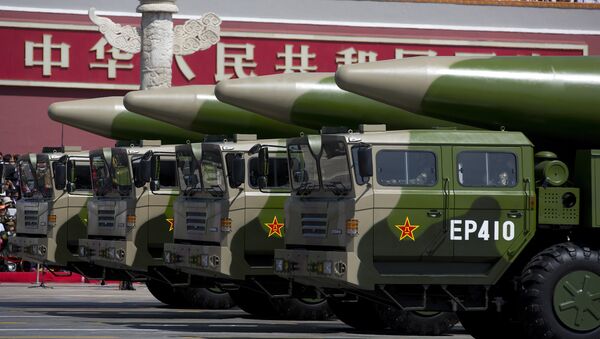Sputnik: What is your reaction to the US move, and particularly the claims of Russian violations of the treaty?
Peter Kuznick: It's a very dangerous move on the part of the United States. It further erodes any effort to control the nuclear arms race. We've seen an escalation already, certainly in the rhetoric. Donald Trump said during the campaign that 'what's the point of having nuclear weapons if we can't use them' which to most people would mean let's get rid of the nuclear weapons, but to Trump means 'let's figure out a way to make them useable.' So the world has gotten much more dangerous.
We already had eroded the [strategic security] structure in 2002 when the United States pulled out of the Anti-Ballistic Missile Treaty, and in President Putin's March 1 state of the nation address, he focused on the 2002 move by the United States as very destabilizing, and to use it in part to justify the fact that Russia now is developing five new nuclear weapons, all of which can evade US ballistic missile systems.
So [the situation] has already been escalating, and this is a major escalation, and a major destabilization, at a time when relations between the United States and Russia are already very, very bad.
Peter Kuznick: Well, Trump's national security adviser John Bolton hates international treaties, hates arms control treaties, and has been pushing for a long time for the United States to abrogate the INF treaty. He brought in Tim Morrison, who is also a rabid hawk on these issues, and the two of them really took the initiative away from the State Department, took the initiative away from the Pentagon.Sputnik: It's certainly come out of the blue and is a shock to many people, who have been left scratching their heads about this decision. Where has it come from? President Trump is on record saying that he wanted closer ties with President Putin and Russia. He's not been able to do that because of Congress and the US political machine. Is the decision on the INF underpinned by Congress? Where does it come from, do you think?
Most people in leadership positions in the United States did not approve of this; neither did many in the Congress. I haven't heard them speaking up about it yet, but hopefully they will, since this just hit.
What we have in the United States is pretty much of a lock-step knee-jerk kind of response to Trump among Republicans. So I don't know if there's going to be any opposition to this. It's being pitched in terms of Russian breaches of the treaty that are accused by the United States. This goes back to 2014, when Obama first started to accuse Russia of breaching the treaty.This only affects the ground-launched missiles. It does not affect the air-launched or sea-launched missiles; the United States might not have [the former], but is very-well positioned to defend itself in any way that's foreseeable.But now it's also focused toward China, because China was not part of the treaty, so China is not limited [by its terms], but does have intermediate-range ground-launched missiles.
The other thing about this that makes no sense is, we don't know where the United States, even if it built such missiles, would put them. The Europeans certainly don't want them. It's enough to remember how back in the 1980s, the kind of massive protests against the introduction of the Pershing II and cruise missiles. The Europeans are not going to allow this back into Europe. I doubt that Japan or South Korea is going to allow these back. Where are we going to put them? Maybe in Guam.
But this is really very stupid from the American standpoint. Russia can ramp [production of these weapons] up at a much faster pace than the United States can. It was not even included in the nuclear posture review earlier this year. So this is a stupid move, but it's one of a whole series of stupid moves that have been going on in terms of US-Russian relations.Peter Kuznick: Trump can pretty much do this single-handedly. And the thing about this that's so sad is that if we go back to 1986, this comes out of the meeting between Reagan and Gorbachev in Reykjavik. They came so close in that meeting to eliminating all nuclear weapons. [INF] was kind of the fallback compromise that they came out of that meeting with after Reagan refused to go along with Gorbachev's efforts to eliminate all nuclear weapons. Reagan insisted that we had to build our Star Wars Strategic Defense Initiative [nuclear shield], and Gorbachev said 'let's limit this to the laboratory for ten years, and if you're willing to limit it to the laboratory, we will go ahead and eliminate all nuclear weapons'. Reagan refused to do so. Sputnik: Do you think that this decision could be overturned by Congress, or is this it?
So this was the compromise fallback position, but it eliminated an entire class of nuclear weapons. 2,700 nuclear weapons were destroyed at that time, and it was an important move, and has been kind of a foundation, a bedrock piece, for US-Russian relations since then. So in some sense [Trump's talk of withdrawing from the INF is] more a symbolic move than it is a concrete militarily significant move, but it's further eroding the relations that the United States and Russia should be having, and exacerbating an already very, very tense situation.
Dr. Peter Kuznick is a professor of history and the director of the Nuclear Studies Institute at American University in Washington, DC. The views expressed by Dr. Kuznick are his own, and do not necessarily reflect those of Sputnik.

